
Published in 2021 by The Rosen Publishing Group, Inc. 29 East 21st Street, New York, NY 10010 Copyright 2021 by The Rosen Publishing Group, Inc. All rights reserved. No part of this book may be reproduced in any form without permission in writing from the publisher, except by a reviewer. First Edition Editor: Kristen Susienka Book Design: Rachel Rising Photo Credits: Cover, p. 1, 3,4,56,8,10,12,14,16,18,20,22,23,24 (background) Flas100/Shutterstock.com; Cover, pp. 1,5,7,9,11,13,15,17,19,21 ( text box ) mhatzapa/Shutterstock.com; p. 4 Ebtikar/ Shutterstock.com; p. 5 Iakov Filimonov/Shutterstock.com; p. 6 Kaesler Media/Shutterstock.com; p. 7 Jess Rodrigues/Shutterstock. com; p. 8 VaLiza/Shutterstock.com; p. 9 Dragana Gordic/Shutterstock.com; p. 10 Inna Astakhova/Shutterstock.com; p. 11 fizkes/ Shutterstock.com; p. 13 Science Photo Library - SCIEPRO/Brand X Pictures/Getty Images; p. 14 leungchopan/Shutterstock.com; p. 15 Nikodash/Shutterstock.com; p. 16 Tamara Kulikova/Shutterstock.com; p. 18 schankz/Shutterstock.com; p. 19 LightField Studios/ Shutterstock.com; p. 20 GLRL/Shutterstock.com; p. 21 Brocreative/Shutterstock.com; p. 22 Gelpi/Shutterstock.com. 22 Gelpi/Shutterstock.com.
Some of the images in this book illustrate individuals who are models. The depictions do not imply actual situations or events. Cataloging-in-Publication Data Names: Morlock, Rachael. Title: What is social anxiety? / Rachael Morlock. Description: New York : PowerKids Press, 2021. | Series: Understanding anxiety | Includes glossary and index.
Identifiers: ISBN 9781725317932 (pbk.) | ISBN 9781725317956 (library bound) | ISBN 9781725317949 (6 pack) Subjects: LCSH: Anxiety--Juvenile literature. | Anxiety in children--Juvenile literature. | Panic disorders--Treatment--Juvenile literature. Classification: LCC BF723.A5 M667 2021 | DDC 155.418232--dc23--dc23 Manufactured in the United States of America CPSIA Compliance Information: Batch #CSPK20. For Further Information contact Rosen Publishing, New York, New York at 1-800-237-9932.

Contents
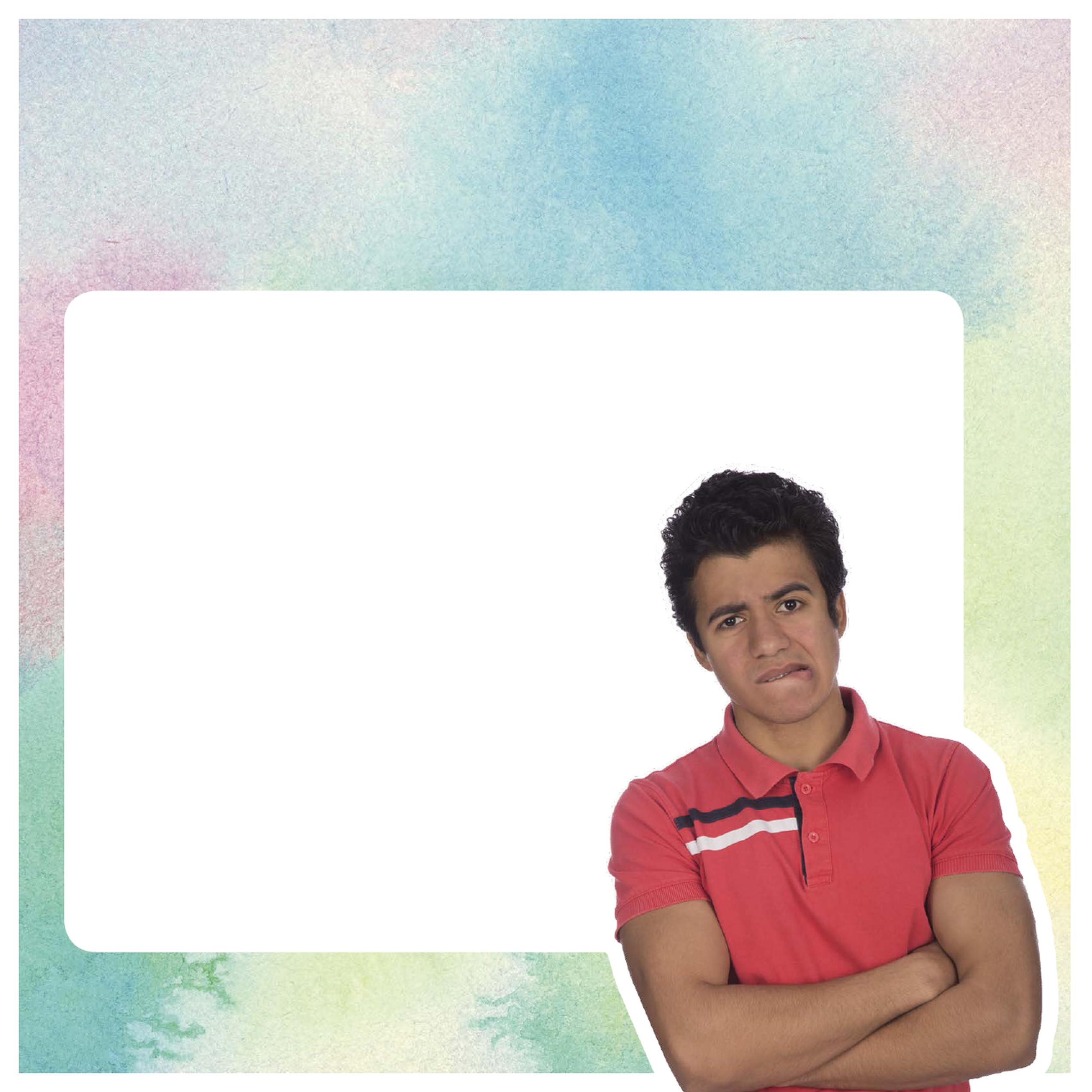
What Is Social Anxiety? You feel your face turn red.
Your hands are wet with sweat. Your heart pounds in your chest, and your stomach does a flip. Maybe youre standing in front of your class, performing , or meeting someone new. Everyone can think of a time theyve felt nervous like this around other people. But some people have these feelings every day. Its called social anxiety.
It makes people fear being with others and can make living life hard sometimes.

What Is Social Anxiety? Feeling nervous and shy often makes life hard. Social anxiety can get in the way of meeting friends, going to school, and doing things you love.

Negative Messages Social anxiety is a strong fear of being watched, being judged, or not being accepted by others. Many people with social anxiety are afraid of embarrassing themselves in public. They worry that others will think badly of them because of the things they say or do.
Their fear comes from negative messages in their mind. Negative messages can be so loud that they take over other thoughts. They make it hard to feel comfortable and enjoy being with other people.

Negative Messages People with social anxiety worry that they arent good enough and that others wont like them. They believe the negative messages in their minds.

Feeling Anxious Fear changes the way you think.
It also changes the way your body feels. You might sweat, blush , feel shaky, and have trouble speaking. Sometimes, social anxiety makes your heart race. It can make your head or stomach hurt. You might feel dizzy, out of breath, or tired. Feeling anxious can change the way you act.
Its common for people with social anxiety to speak too quietly or quickly, stay on the edge of groups, or avoid meeting peoples eyes.

Feeling Anxious Social anxiety changes the way you feel and act. It can also change your mood and make you feel angry or sad.

Facing Your Fears Fear is natural. Its your bodys way of telling you that a situation is unsafe. But sometimes your brain makes a mistakeit tells you that a situation is unsafe when it isnt.
When this happens, fear can keep you from doing normal, everyday things for a long time. If fear makes it hard for you to go to school, learn, make friends, or talk to others, then a doctor might tell you that you have social anxiety disorder .

Facing Your Fears Talking to a doctor is an important step in dealing with social anxiety. Doctors will help you find the tools to control your fears.

Where Does It Come From? Social anxiety is nothing to be embarrassed about. Lots of people have it.
Its usually genetic. That means its passed down in families. Your life at home and with your parents can lead to social anxiety, too. Children who are shy might have more social anxiety as they get older. Being bullied or having something frightening happen sometimes leads to social anxiety, too. No matter where it comes from, you can learn to handle social anxiety.
The part of your brain in charge of fear is called the amygdala, shown here in red. The way the amygdala works causes social anxiety.

Where Does It Come From?

Treating Social Anxiety After a doctor has diagnosed a social anxiety disorder, they can help you treat it. Everyone is different, and a doctor will find the best choices for you. Therapy is a common tool for treating social anxiety. A therapist listens to your fears.
Then they help you safely face them one by one. Over time, positive messages take the place of negative messages in your mind. Therapy takes trust and courage . It can help you build skills and find strength.





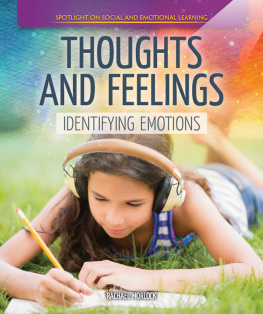

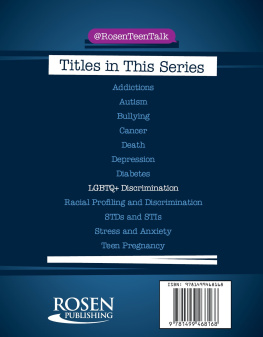
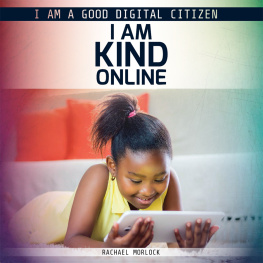
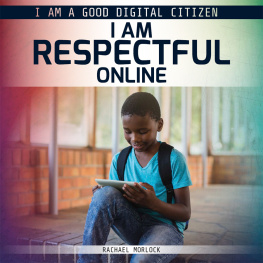


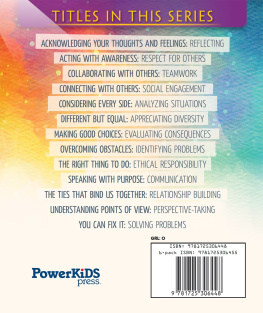
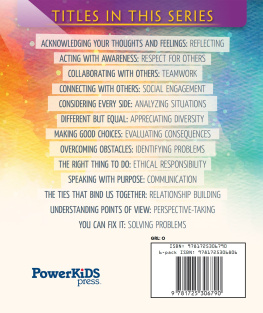
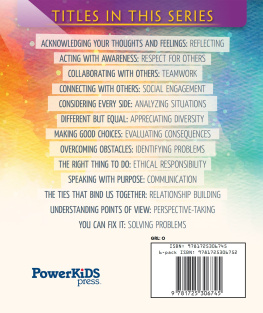
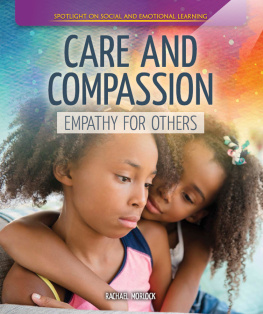


 Published in 2021 by The Rosen Publishing Group, Inc. 29 East 21st Street, New York, NY 10010 Copyright 2021 by The Rosen Publishing Group, Inc. All rights reserved. No part of this book may be reproduced in any form without permission in writing from the publisher, except by a reviewer. First Edition Editor: Kristen Susienka Book Design: Rachel Rising Photo Credits: Cover, p. 1, 3,4,56,8,10,12,14,16,18,20,22,23,24 (background) Flas100/Shutterstock.com; Cover, pp. 1,5,7,9,11,13,15,17,19,21 ( text box ) mhatzapa/Shutterstock.com; p. 4 Ebtikar/ Shutterstock.com; p. 5 Iakov Filimonov/Shutterstock.com; p. 6 Kaesler Media/Shutterstock.com; p. 7 Jess Rodrigues/Shutterstock. com; p. 8 VaLiza/Shutterstock.com; p. 9 Dragana Gordic/Shutterstock.com; p. 10 Inna Astakhova/Shutterstock.com; p. 11 fizkes/ Shutterstock.com; p. 13 Science Photo Library - SCIEPRO/Brand X Pictures/Getty Images; p. 14 leungchopan/Shutterstock.com; p. 15 Nikodash/Shutterstock.com; p. 16 Tamara Kulikova/Shutterstock.com; p. 18 schankz/Shutterstock.com; p. 19 LightField Studios/ Shutterstock.com; p. 20 GLRL/Shutterstock.com; p. 21 Brocreative/Shutterstock.com; p. 22 Gelpi/Shutterstock.com. 22 Gelpi/Shutterstock.com.
Published in 2021 by The Rosen Publishing Group, Inc. 29 East 21st Street, New York, NY 10010 Copyright 2021 by The Rosen Publishing Group, Inc. All rights reserved. No part of this book may be reproduced in any form without permission in writing from the publisher, except by a reviewer. First Edition Editor: Kristen Susienka Book Design: Rachel Rising Photo Credits: Cover, p. 1, 3,4,56,8,10,12,14,16,18,20,22,23,24 (background) Flas100/Shutterstock.com; Cover, pp. 1,5,7,9,11,13,15,17,19,21 ( text box ) mhatzapa/Shutterstock.com; p. 4 Ebtikar/ Shutterstock.com; p. 5 Iakov Filimonov/Shutterstock.com; p. 6 Kaesler Media/Shutterstock.com; p. 7 Jess Rodrigues/Shutterstock. com; p. 8 VaLiza/Shutterstock.com; p. 9 Dragana Gordic/Shutterstock.com; p. 10 Inna Astakhova/Shutterstock.com; p. 11 fizkes/ Shutterstock.com; p. 13 Science Photo Library - SCIEPRO/Brand X Pictures/Getty Images; p. 14 leungchopan/Shutterstock.com; p. 15 Nikodash/Shutterstock.com; p. 16 Tamara Kulikova/Shutterstock.com; p. 18 schankz/Shutterstock.com; p. 19 LightField Studios/ Shutterstock.com; p. 20 GLRL/Shutterstock.com; p. 21 Brocreative/Shutterstock.com; p. 22 Gelpi/Shutterstock.com. 22 Gelpi/Shutterstock.com.  Contents
Contents  What Is Social Anxiety? You feel your face turn red.
What Is Social Anxiety? You feel your face turn red.  What Is Social Anxiety? Feeling nervous and shy often makes life hard. Social anxiety can get in the way of meeting friends, going to school, and doing things you love.
What Is Social Anxiety? Feeling nervous and shy often makes life hard. Social anxiety can get in the way of meeting friends, going to school, and doing things you love.  Negative Messages Social anxiety is a strong fear of being watched, being judged, or not being accepted by others. Many people with social anxiety are afraid of embarrassing themselves in public. They worry that others will think badly of them because of the things they say or do.
Negative Messages Social anxiety is a strong fear of being watched, being judged, or not being accepted by others. Many people with social anxiety are afraid of embarrassing themselves in public. They worry that others will think badly of them because of the things they say or do.  Negative Messages People with social anxiety worry that they arent good enough and that others wont like them. They believe the negative messages in their minds.
Negative Messages People with social anxiety worry that they arent good enough and that others wont like them. They believe the negative messages in their minds.  Feeling Anxious Fear changes the way you think.
Feeling Anxious Fear changes the way you think.  Feeling Anxious Social anxiety changes the way you feel and act. It can also change your mood and make you feel angry or sad.
Feeling Anxious Social anxiety changes the way you feel and act. It can also change your mood and make you feel angry or sad.  Facing Your Fears Fear is natural. Its your bodys way of telling you that a situation is unsafe. But sometimes your brain makes a mistakeit tells you that a situation is unsafe when it isnt.
Facing Your Fears Fear is natural. Its your bodys way of telling you that a situation is unsafe. But sometimes your brain makes a mistakeit tells you that a situation is unsafe when it isnt.  Facing Your Fears Talking to a doctor is an important step in dealing with social anxiety. Doctors will help you find the tools to control your fears.
Facing Your Fears Talking to a doctor is an important step in dealing with social anxiety. Doctors will help you find the tools to control your fears.  Where Does It Come From? Social anxiety is nothing to be embarrassed about. Lots of people have it.
Where Does It Come From? Social anxiety is nothing to be embarrassed about. Lots of people have it.  Where Does It Come From?
Where Does It Come From?  Treating Social Anxiety After a doctor has diagnosed a social anxiety disorder, they can help you treat it. Everyone is different, and a doctor will find the best choices for you. Therapy is a common tool for treating social anxiety. A therapist listens to your fears.
Treating Social Anxiety After a doctor has diagnosed a social anxiety disorder, they can help you treat it. Everyone is different, and a doctor will find the best choices for you. Therapy is a common tool for treating social anxiety. A therapist listens to your fears.